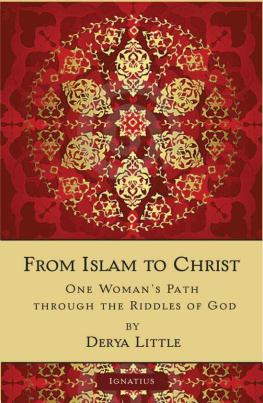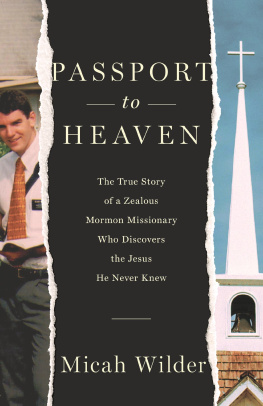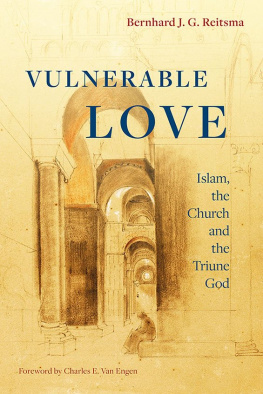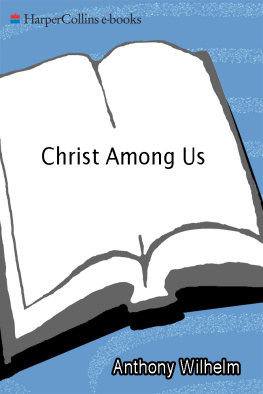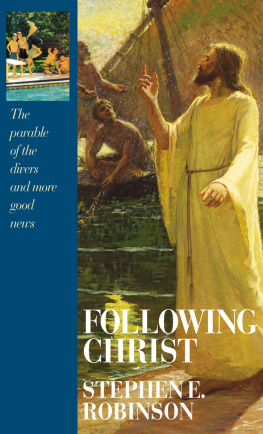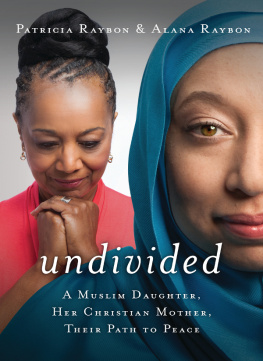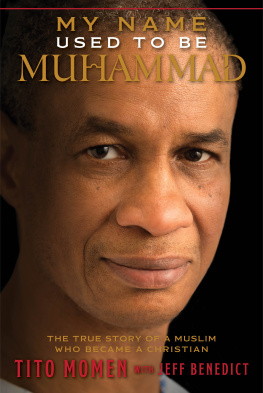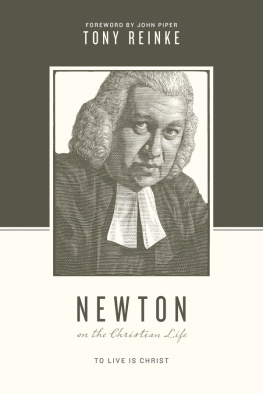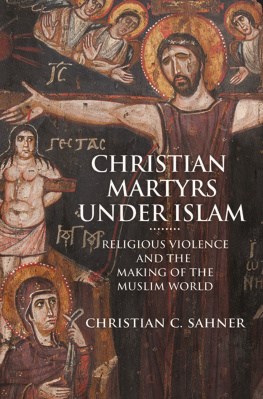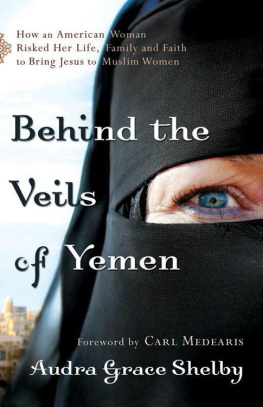FROM ISLAM TO CHRIST
DERYA LITTLE
From Islam to Christ

One Womans Path through
the Riddles of God
With a foreword by
Kathryn Jean Lopez
IGNATIUS PRESS SAN FRANCISCO
Unless otherwise indicated, Scripture quotations are from Revised Standard Version of the BibleSecond Catholic Edition (Ignatius Edition) copyright 2006 National Council of the Churches of Christ in the United States of America. Used by permission. All rights reserved worldwide.
Excerpts from the English translation of the Catechism of the Catholic Church , Second Edition, 1994, 1997, 2000 by Libreria Editrice VaticanaUnited States Catholic Conference, Washington, D.C. All rights reserved.
Cover art: Antique Ottoman wallpaper design by
Murat Cokeker, shutterstock.com
Cover design by Riz Boncan Marsella
2017 Ignatius Press, San Francisco
All rights reserved
ISBN 978-1-62164-112-4 (PB)
ISBN 978-1-68149-770-9 (EB)
Library of Congress Control Number 2017932952
Printed in the United States of America
For my children
The riddles of God are more satisfying than the solutions of man.
G. K. Chesterton
Contents
Foreword
Thank God for ISIS.
You do, of course, do a double take when you hear such a thingespecially when it is said as naturally as it was by an Iraqi Christian woman being interviewed for a documentary. When I encountered her video testimony as part of an exhibit during New York Encounter, an annual festival of religion, culture, and politics in Manhattan, organized by Communion and Liberation, one of the vibrant movements in the Church today, I was transfixed. She and her family fled their comfortable lives in Mosul when the so-called Islamic State gave Christians a convert-or-die ultimatum.
The reason for the womans gratitude for radical Islamic terrorists? Before she faced such a dramatic choice, she explained, her faith was lukewarm. No more . She actively chose Christ because He chose herfor love and mercy and the promise of eternal life.
Derya Little, who was born in Turkey and raised a Muslim, has also actively chosen Christ and left her homeland. Both she and the Iraqi Christian woman described above have made the same discovery: the pearl of great price, who is worth any sacrifice to obtain. The latter has paid the price by embracing her Christian identity, the former by adopting one.
Little has done the world a service by writing this courageous book. On her journey from Islam to atheism to Evangelical Christianity to Roman Catholicism, we see how the Divine Physician brings a healing balm to many open wounds people live with today: broken relationships, abortion, emptiness, unforgiveness. Her story is one of mercy, written as a witness to and an act of mercy.
Its a testimony of faith, yes, and it is also an invitation to look people in the eye and hear their storiesto remember that the person next to you in traffic or taking too long with your order or sitting across from you in the waiting room of an auto body shop is a person with a history and a present and a future, a person who might just have some wisdom to download. It reminds us that the tender love of God in Jesus Christ can be a tremendous leaven for good, not only in individual lives but in society as a wholeand that is why Christianity must survive alongside Islam in the Middle East and be lived boldly and confidently and joyfully here in the United States, where Little and her growing family now make their home.
Let Littles story inspire you out of lukewarm living. She chooses to love, and radically so, with sainthood as the goal for her and the little ones over whom God gave her stewardship. We can and should make the same choice, again and again, every moment of our lives; that is, to answer Christs call to us. Christianity isnt a lifestyle choice, but the transformation of life. And if we live it, it will show, to the benefit of every person in our lives, and the world.
Derya Little does more than a little to reawaken us to the knowledge that we are beloved by God and have the greatest treasure of allChrist Himself, who will make good on His promise to bring to fulfillment the saving work He has begun in us.
Kathryn Jean Lopez
Senior Fellow at
the National Review Institute
April 4, 2017
Acknowledgments
All names, including my own, have been replaced with pseudonyms. I therefore hope that those who have helped me in this journey will know who they are in this story, and I thank them for all of their love and patience. I especially thank Therese, Alan, and my wonderful husband for their invaluable help. I am always in need of more sense.
1
Turkey, Land of My Birth
As I sat on the white plastic chair at a mechanics garage in southwestern Pennsylvania, smelling the engine grease and hearing the various bangs and hisses that filled the air, I appreciated the rare pleasure of enjoying a good book. At the time I was a mother of three children under the age of five, and reading fiction was sometimes difficult to reconcile with my responsibilities. Thanks to our busted catalytic converter, there I was, slowly reading the last book of my beloved Dean Koontz character Odd Thomas, enjoying cold, sweet hazelnut coffee, and feeling blessed and grateful.
Looking up from my book, I saw a big wooden crucifix that should have seemed out of place in the mostly metal garage, but Christs crucified figure did not appear to mind His surroundings at all. I pondered the image that changed everything for me; then I smiled. The reason for my amusement was that if my twenty-year-old self were to occupy my thirty-four-year-old body momentarily, and saw who I was, she would think I had gone insane. The younger Derya did not drive, yet there I was waiting for my huge Honda van to be fixed. She did not believe in marriage, yet I was waiting for the mechanic to finish, so that I could get back to my wonderful husband of six years. A decade ago, Derya did not want any children, yet I was the mother of three beautiful and busy saint makers. She had never traveled outside Turkey or been inside an airplane, yet I was living in a small mining town on the other side of the Atlantic Ocean.
Most importantly, that Turkish young woman did not want anything to do with God, yet I was filled with gratitude and hope at the sight of a crucifix in a garage. Little by little, I had traveled far, not only physically but also spiritually. Thankfully, as wise Gandalf says in The Lord of the Rings , Not all who wander are lost.
My wanderings began a long time ago in a land far away. About fifty-six hundred miles to the east of my home in Pennsylvania lies Eregli, the Turkish town where my childhood and bumpy adolescence were spent. Surrounded by the high mountains in central Anatolia, Asia Minor in the days of the Roman Empire, the town was initially named for Heracles, the divine superhero of Greek mythology, the son of Zeus and Alcmene. The name has naturally undergone considerable change, as has the town itself. During the time of Saint Paul, who was thrown out of nearby Iconium, Heracles was nothing more than a village, remarkable only for its proximity to the Cilician Gates, one of the few mountain passes that provided travelers from the east access to the warm Mediterranean coast.
When I was growing up, Eregli was a small city of less than a hundred thousand Turks, who were nowhere to be found near Asia Minor when the Roman Empire ruled those lands. There remain some precious markers from the ancient times, including a Hittite rock relief of a lynx carved on the side of a mountaintop and the vases and other small artifacts that bored us during school field trips to the museum. As in most cities and towns in Turkey, the major residential areas are rows of tall apartment buildings that surround a downtown. The inhabitants live in apartments with two or three bedrooms, unless they are farmers or ridiculously rich. I suppose Turks like being close to each other. Also, constructing buildings with hundreds of apartments is a lot more cost- and land-effective than urban sprawl.
Next page
